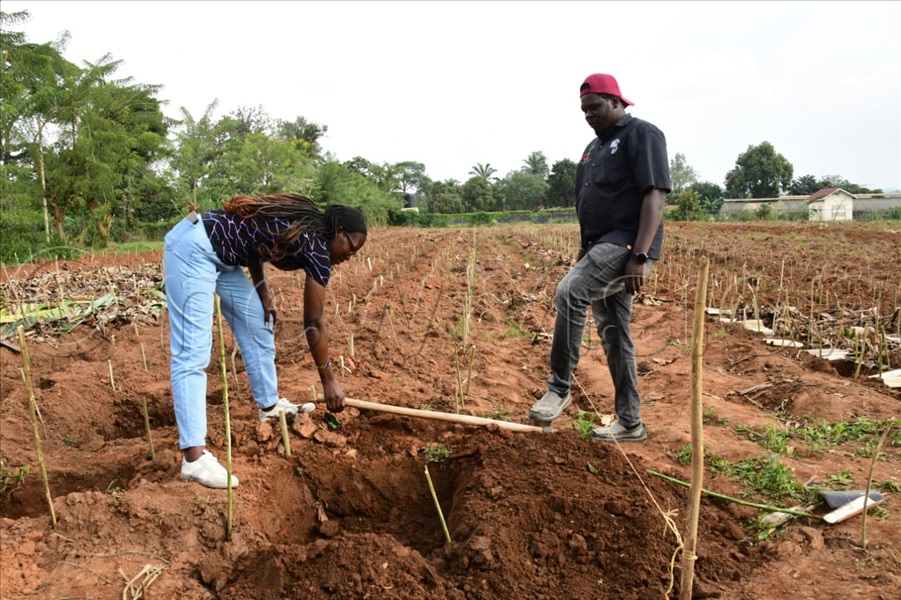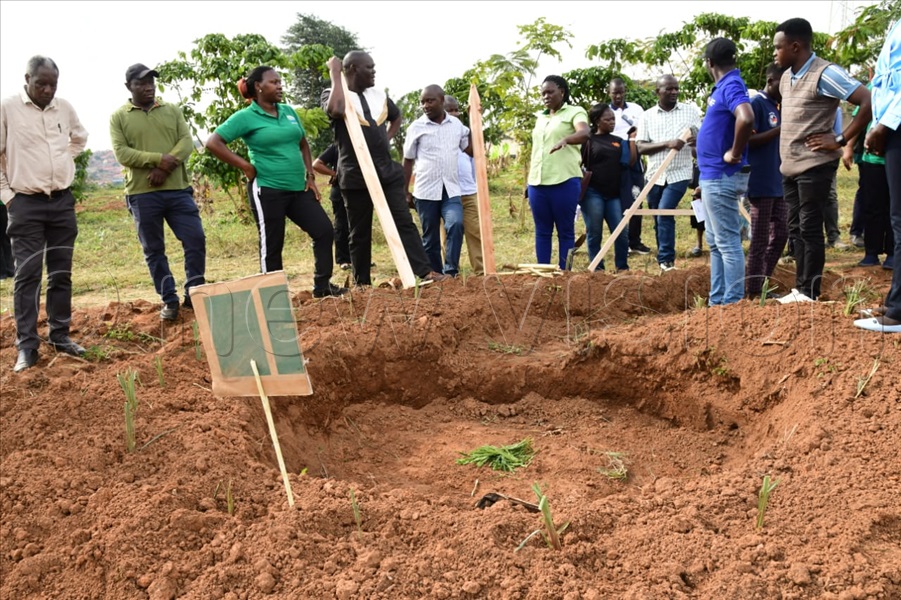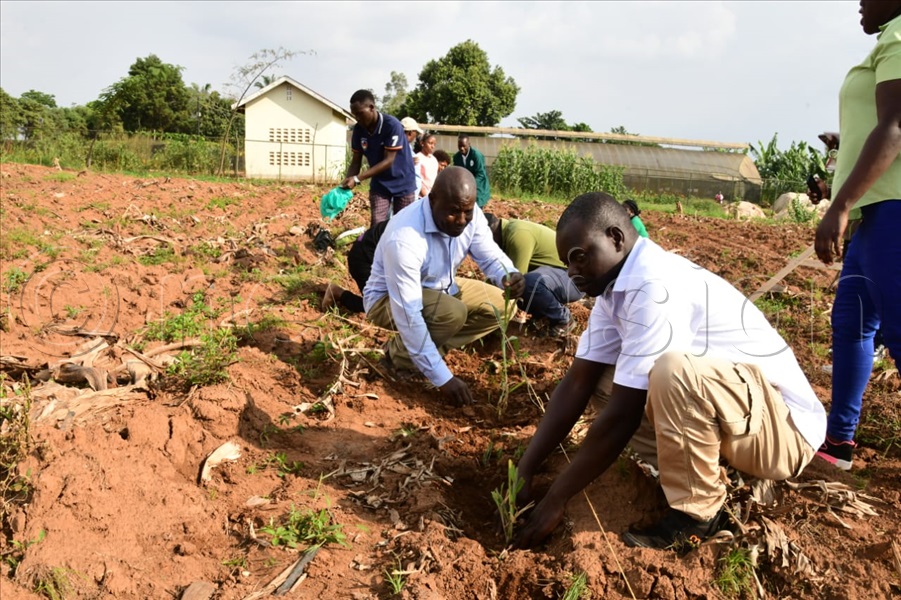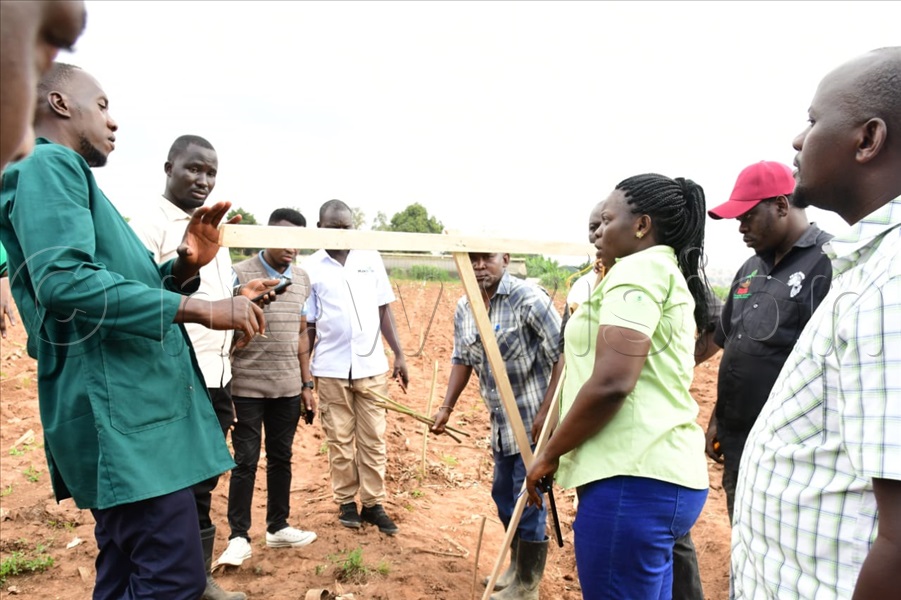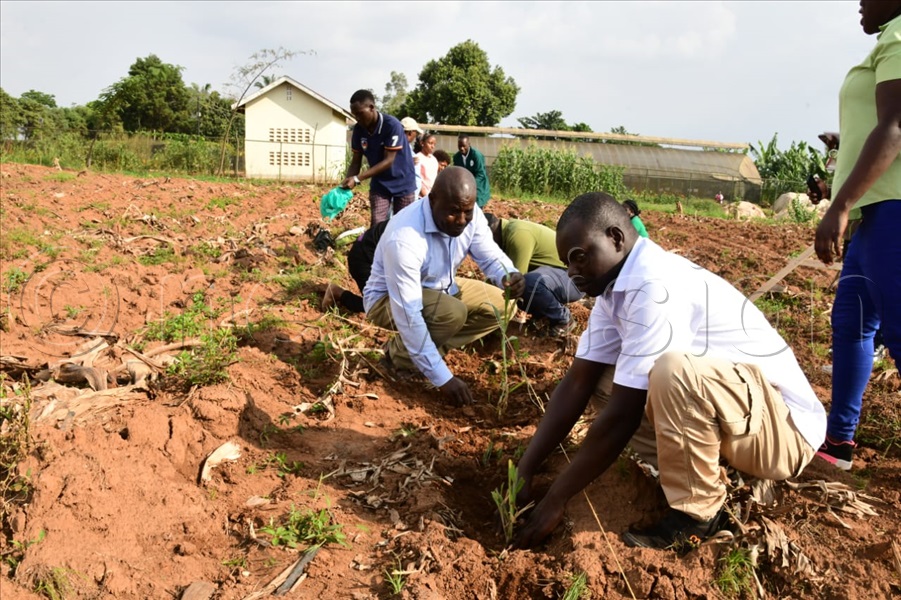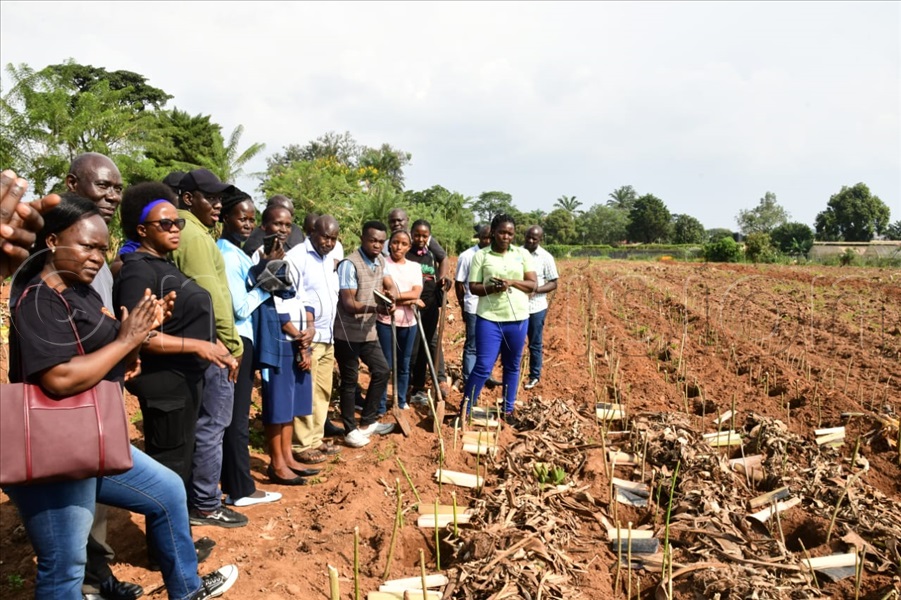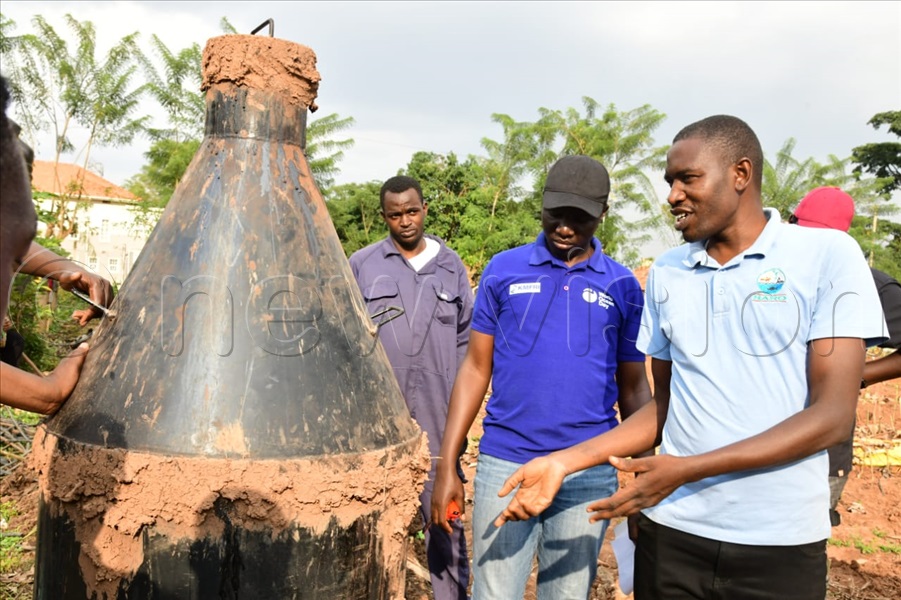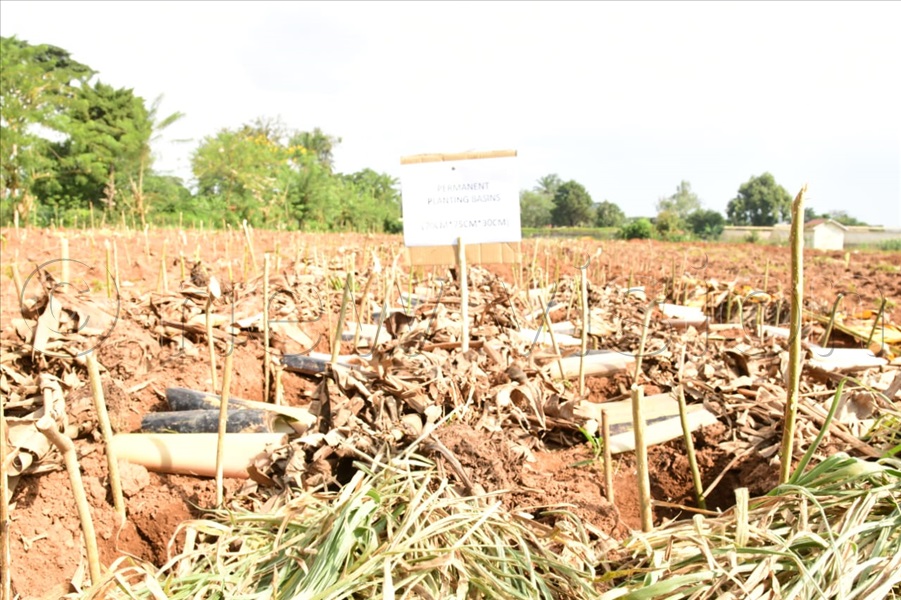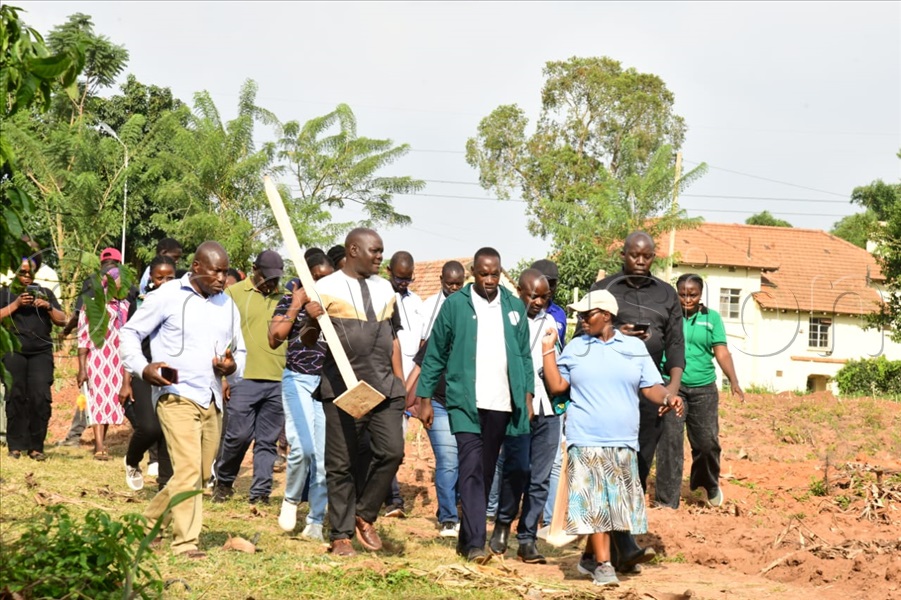📷 ASARECA champions growing, eating healthy foods in East and Central Africa
“Eating healthy food will eventually help us to reduce disease infection, especially through minimising spraying of chemicals that often lead to cancer infections and deaths”.
ASARECA is advocating healthy eating and healthy nutrition through reducing the use of chemicals in the garden.. (Credit: Eddie Ssejjoba)
KAMPALA - The Association for Strengthening Agricultural Research in Eastern and Central Africa (ASARECA) has launched a campaign to mobilise farmers to discard conventional farm practices and adopt new technologies that focus on growing healthy food for healthy living.
According to ASARECA, researchers and scientists in the food and agriculture sectors, as well as farmers in Africa, must adopt and popularise agroecology, which is a new technology that promotes the growing of food using scientific, practical, and social methods.
The system applies natural principles to the farming systems and considers the interactions between plants, animals, humans, and the environment within the agricultural systems.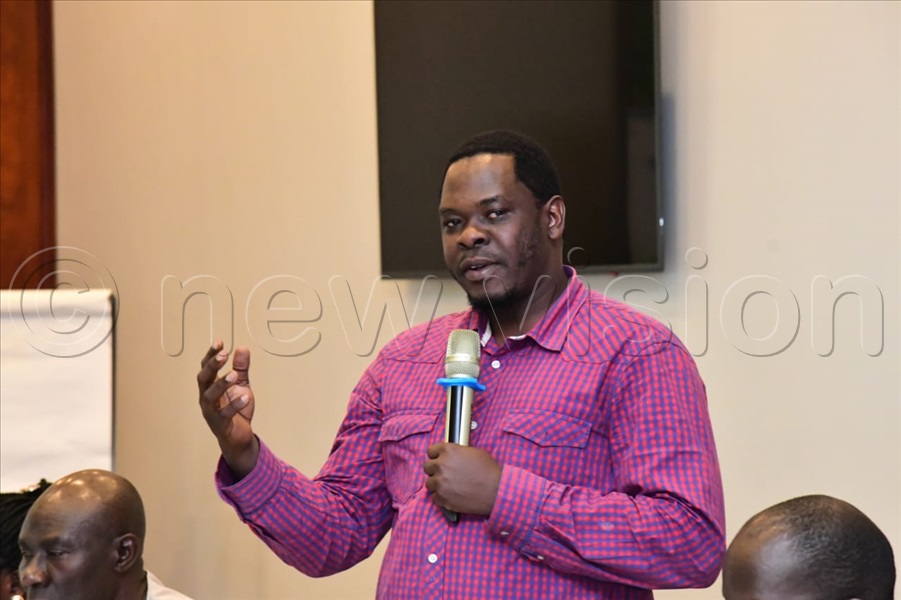
Dr. Robert Guloba during the training. (All Photos by Eddie Ssejjoba)
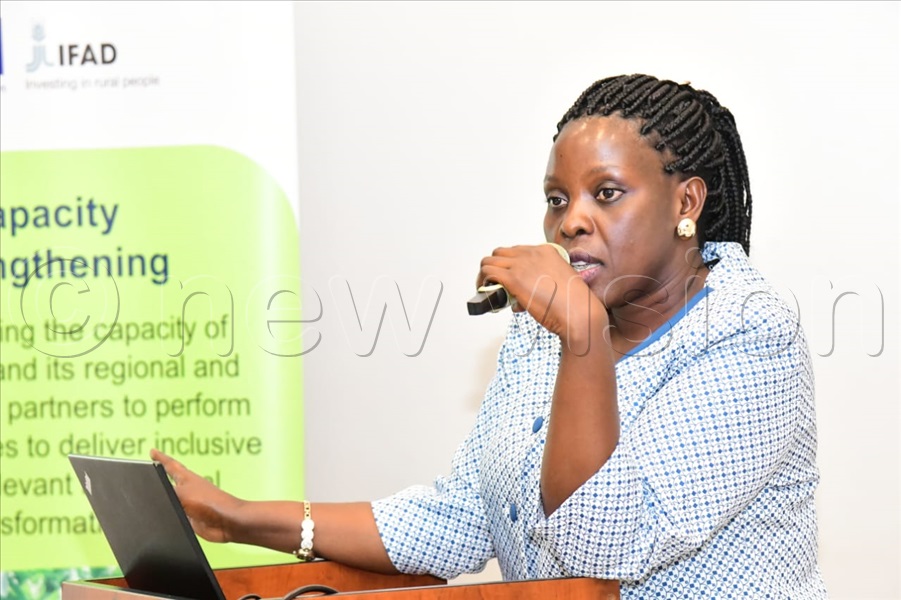
Dr. Nankya delivering the theory of agroecology.
It encourages farmers to reduce the use of chemicals in their gardens and instead use local knowledge to enhance food production and resilience.
Speaking during a four-day hands-on training of trainers at Hilton Gardens Hotel in Kamwokya, Kampala, Blaise Amony, the ASARECA program officer for capacity development, said that in promoting agroecology as a new farming technology, ASARECA is advocating healthy eating and healthy nutrition through reducing the use of chemicals in the garden.
The training was funded by the European Union through the International Fund for Agricultural Development (IFAD) and the Comprehensive Africa Agriculture Development Programme (CAADP).
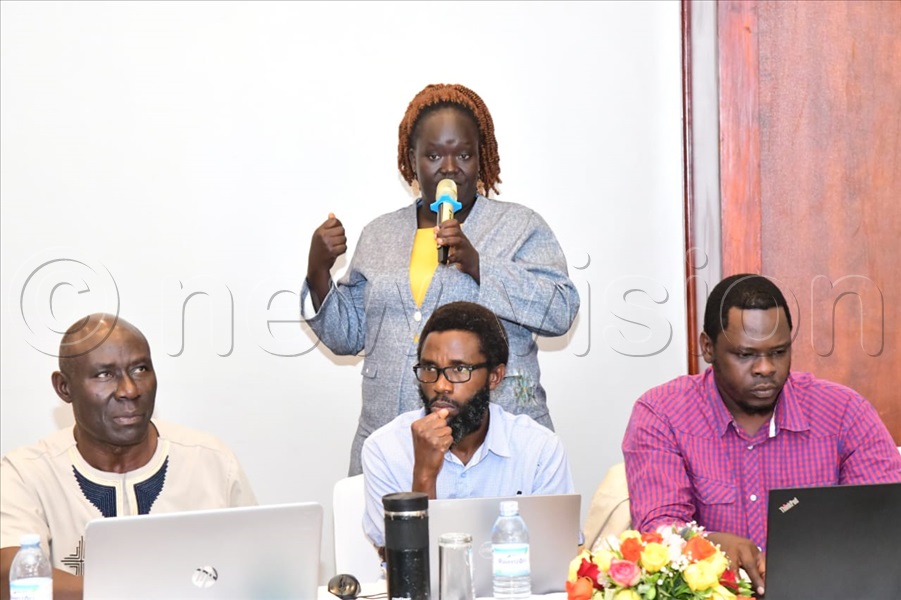
Blaise Amony from ASARECA during the training at Hilton Garden Hotel.
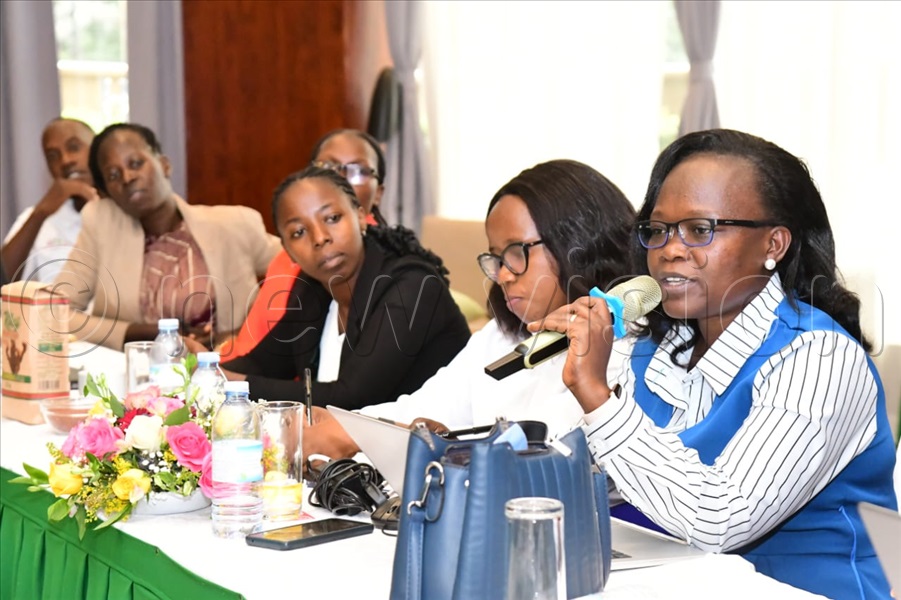
The overall objective was to enhance utilisation of nature-based practices or biological technologies among farmers, the private sector, and researchers.
“We appreciate the EU through IFAD for providing the resources for this training, which is promoting the use of organic fertilisers and pesticides in our gardens so that people who eat food grown on our farms remain healthy.”
She added, “Eating healthy food will eventually help us to reduce disease infection, especially through minimising spraying of chemicals that often lead to cancer infections and deaths”.
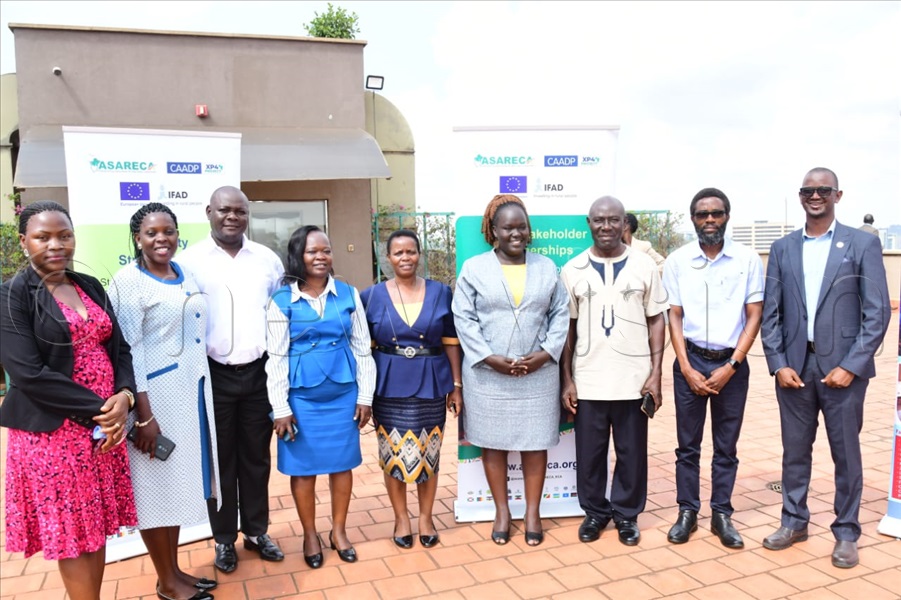
Some of the participants, that included agricultural researchers, farmers and private sector at Hilton Garden Hotel in Kamwokya.
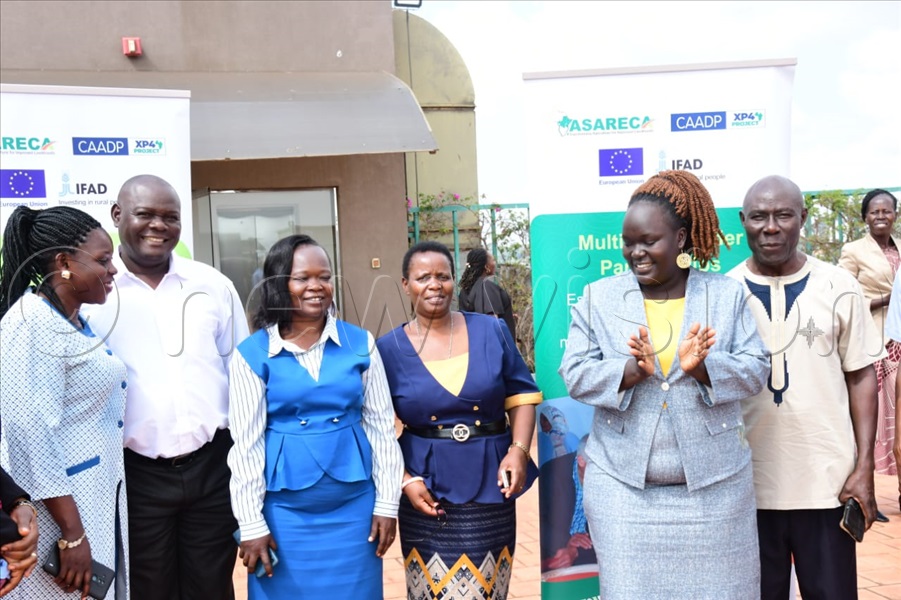
The training, conducted in collaboration with the National Agricultural Research Organisation (NARO) based in Uganda, attracted agricultural scientists, farmers and private sector representatives from the 15 ASARECA member states in East and Central Africa.
Some participants came from Cameroon in West Africa. The training included visiting companies producing organic fertilisers aimed at promoting the utilisation of organic and biological technologies that are critical to adapting to climate change.
Among others, Amony said, ASARECA targets participants to return to their respective communities and enhance the utilisation of biological technologies following an Integrated Pest Management (IPM) approach for crop pest and disease management.
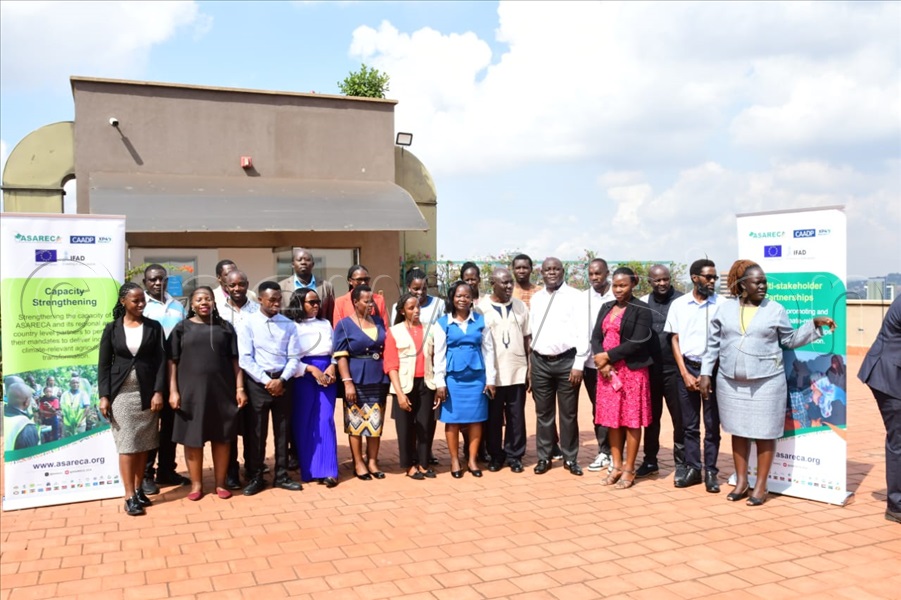
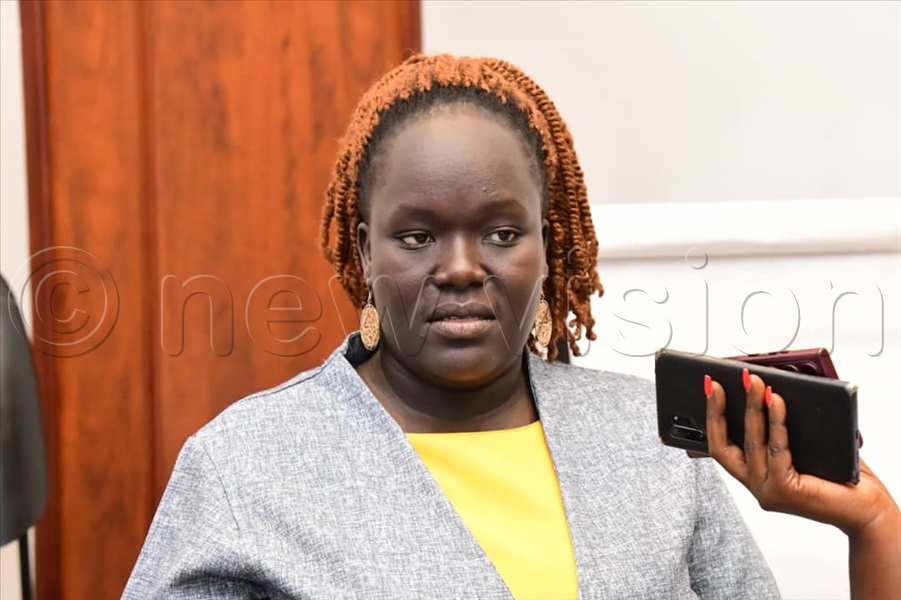
Emphasis, she explained, is given to youth and women farmers in the application of selected biological and organic technologies and enable them to have a hands-on experience with available biological and organic technologies. She said all participants are expected to massively spread the knowledge so that communities begin growing organic food.
Amony said ASARECA is also promoting agroecology to open opportunities for farmers in the region to tap into the growing demand for organically grown food in the European Union (EU).
“We want farmers to grow food which is healthy for themselves and for others while at the same time they earn more money from export of the preferred healthy and organic food,” she noted, adding that eventually ASARECA members should come up with policies that promote the sale of organic food in hotels and supermarkets.
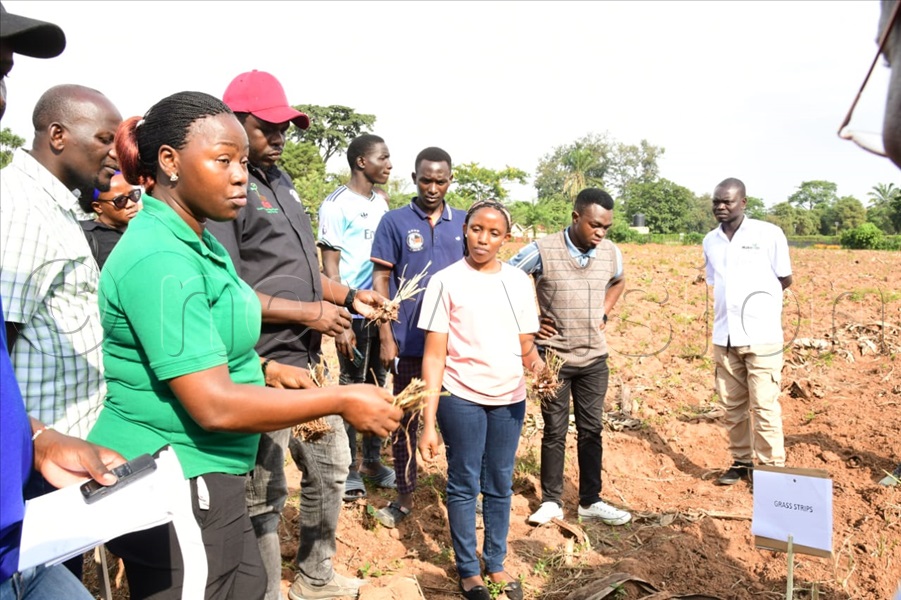
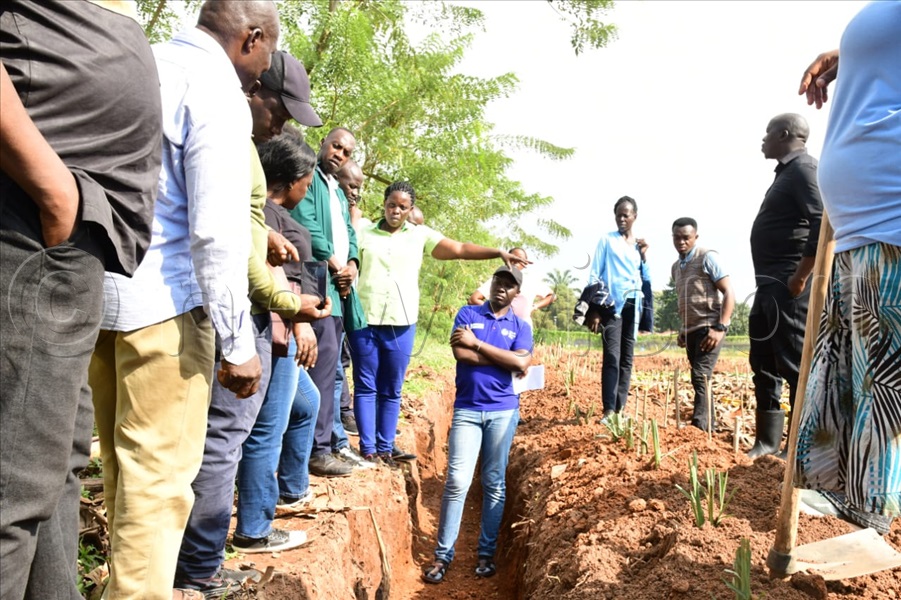
Dr. Eseri Nankya, a trainer from NARO explaining about the infiltrating pits at Kawanda agricultural research institute.
She commended Kenya and Tanzania, which have become aggressive in promoting agroecology practices and popularising organic food in their markets and asked others to copy a leaf.
Dr. Eseri Nankya, a soil fertility scientist from NARO, took the participants from the workshop to a demonstration farm at Kawanda Agricultural Research Institute, where she practically took them through good conservation technologies that give higher yields compared to conventional methods.
She appealed to scientists to stop discussing and sharing academic papers in their offices, but go to the field and practically demonstrate and explain the new technologies to the farmers to enable their communities to benefit from agroecology practices.
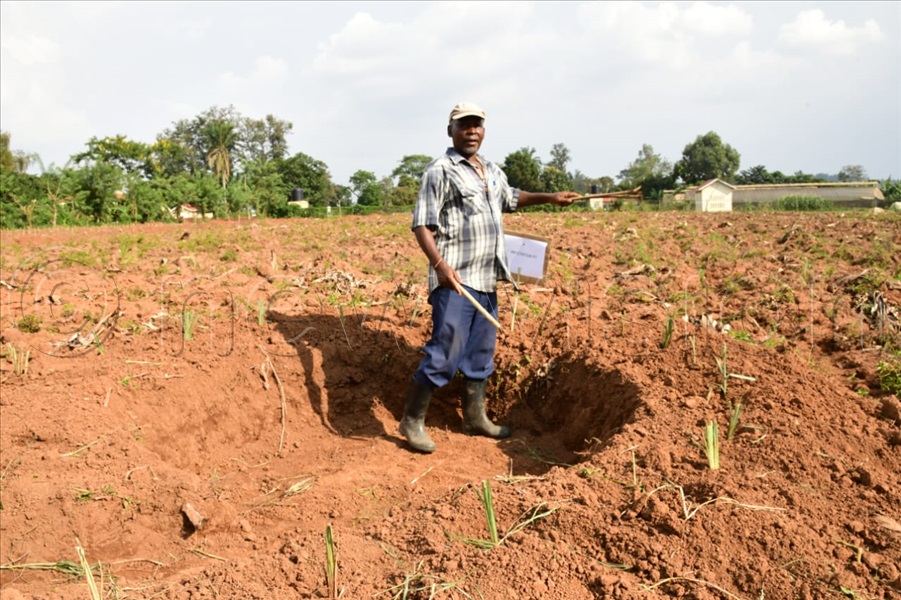
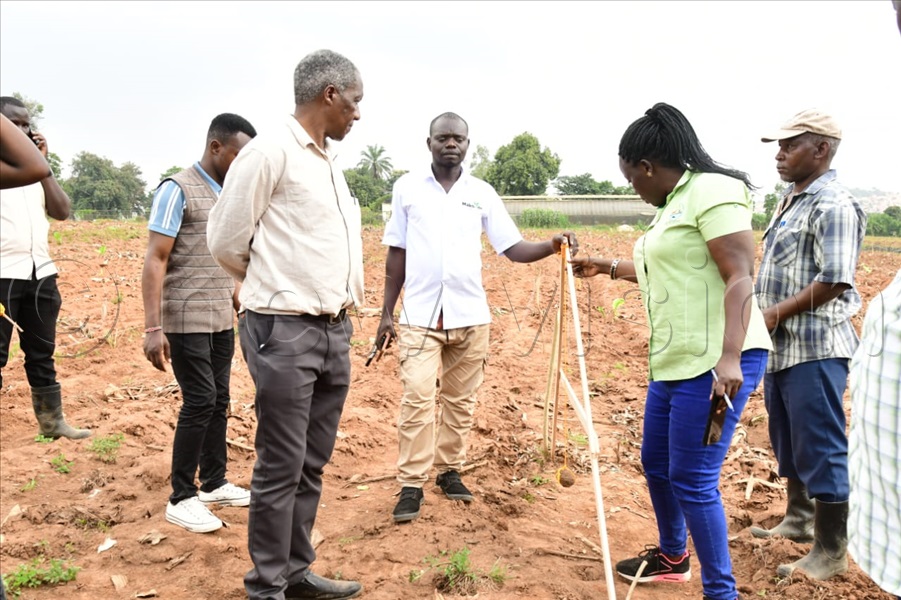
Some of the technologies include use of Zai Pits, which originated from Burkina Faso, that are good for areas that receive little rainfall, especially for farmers that grow non-root crops like beans, maize, peas, cabbage, spinach, corn, and tomatoes.
“In one acre, a farmer can plant a maize population of 16,000 plants and harvest 30 to 45 bags using the Zai Pits compared to the conventional methods,” she explained, adding that the pits allow the farmer to apply some manure for each hole or pit instead of broadcasting on the farm.
“The manure you apply in the pit is good for microwebs, and the pit protects the seed and the organic matter from being washed off to give increased yields,” she stated.
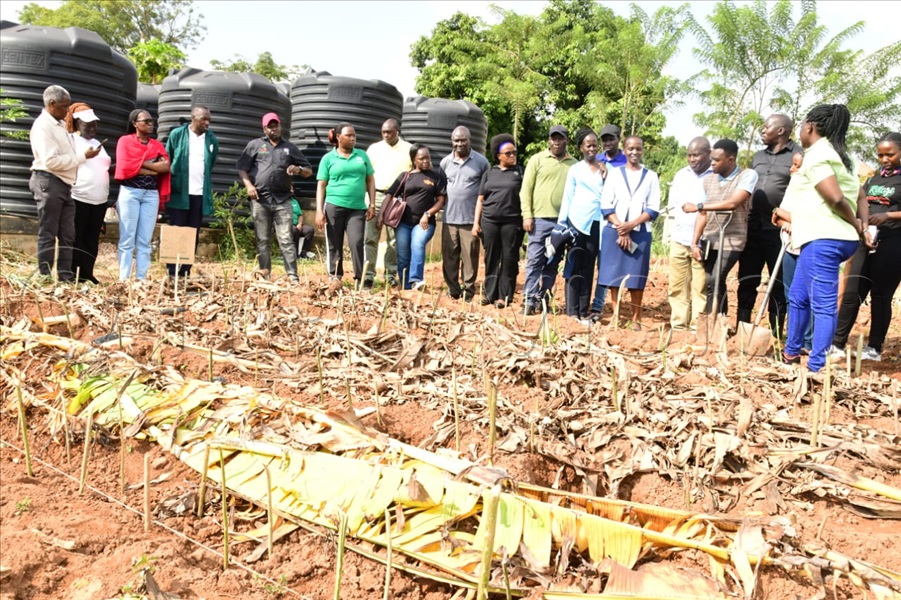
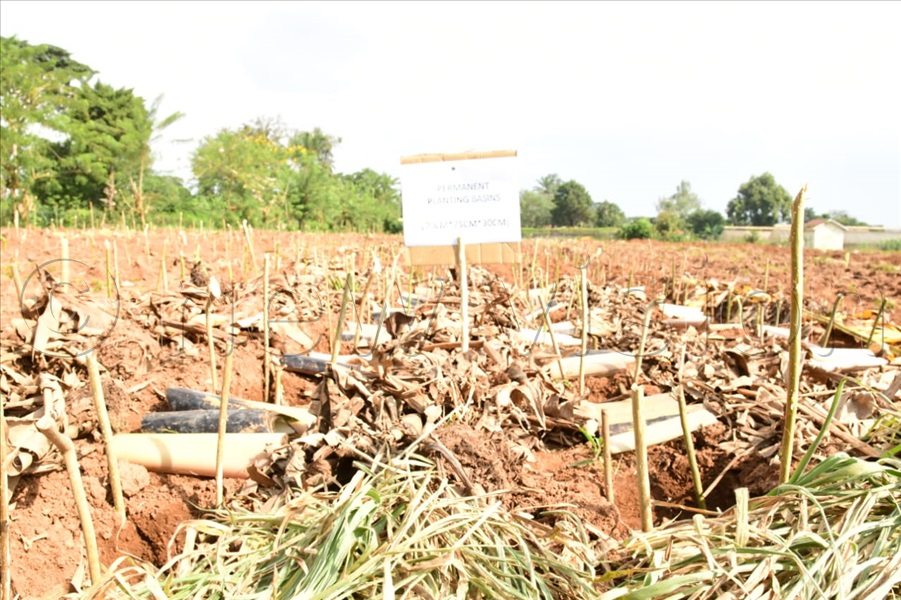
The smaller pits, she explained, also referred to as the Permanent Planting pits, are performing well on beans and maize compared to the conventional way, and NARO was doing a campaign to popularise the methods in several parts of Uganda.
With this method, she explained, a farmer may choose to do mulching between the rows, which she said helps to suppress weed growth.
The method is also good in what is termed as regenerating agriculture or regeneration, which she said does not require much investment.
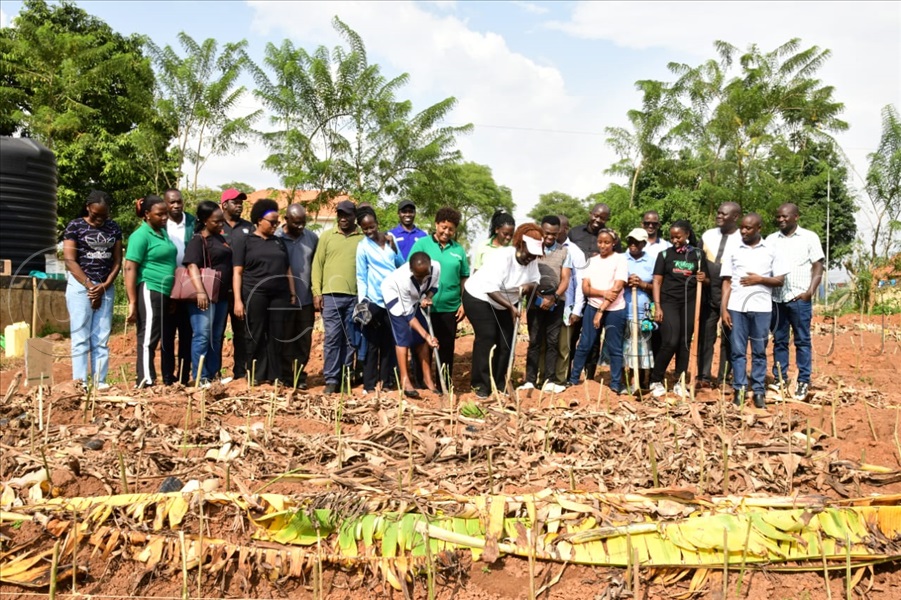
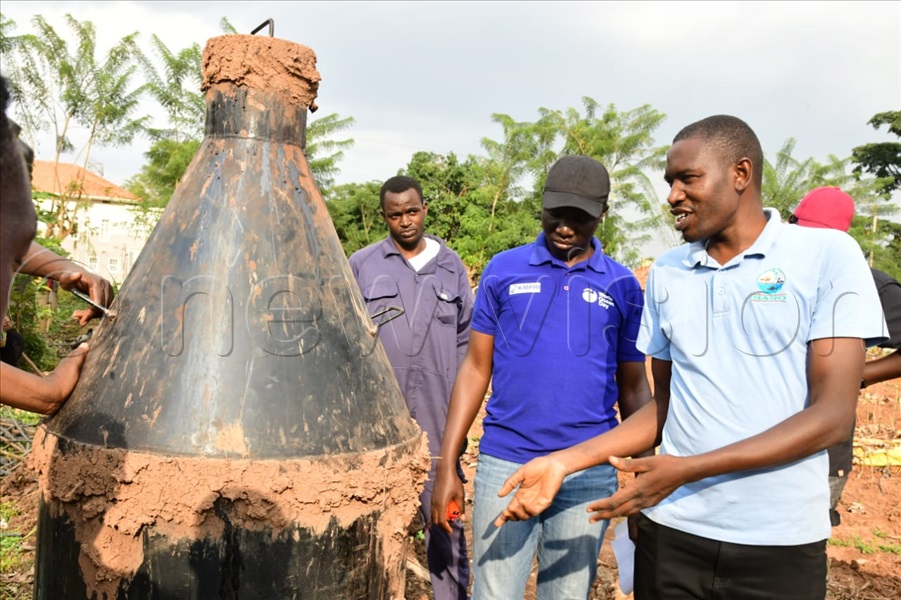
“It is just a turn away from the agro-industrial processes that farmers have relied upon for the past half century, which have steadily degraded the land they rely on,” she explained.
Dr. Nankya said President Yoweri Museveni’s water-bottle method of irrigation appears simple, but recommended it as one of the methods that farmers can use to regenerate their gardens using simple tools.
She encouraged the scientists to involve women and youths in such activities and let them reap the benefits.
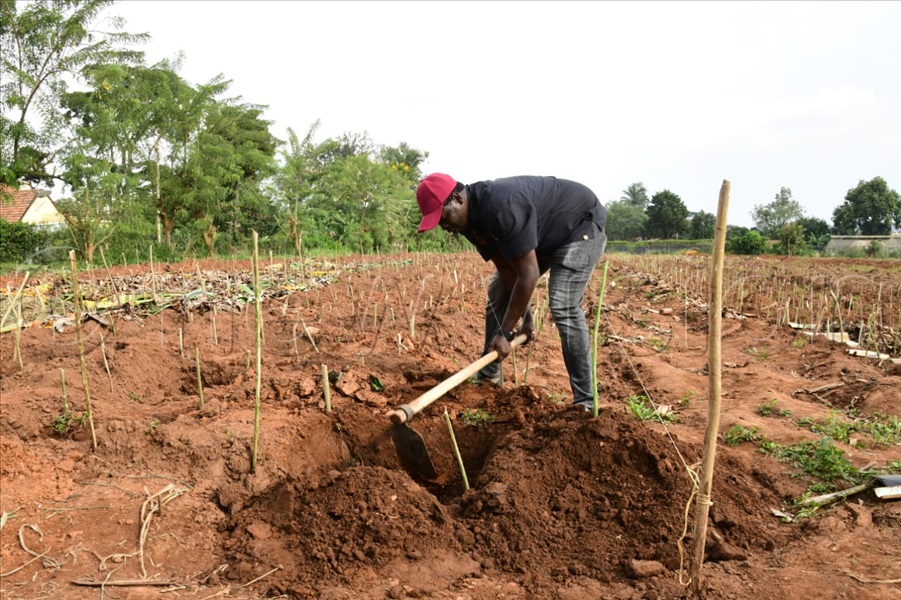
Digging of Zai Pits
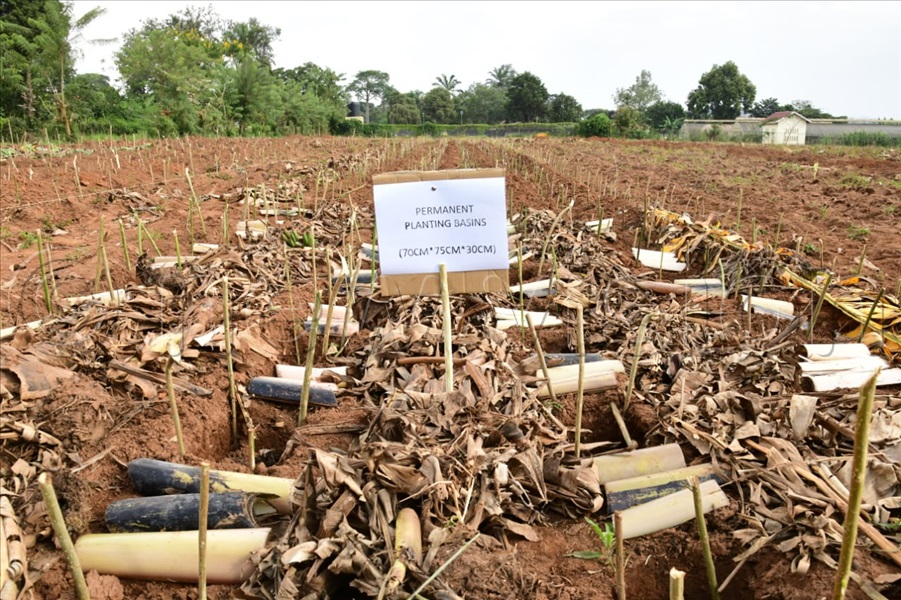
Dr. Robert Guloba, a farmer and an agroecology expert, said that agroecology is an art that farmers apply to their farms using certain principles. It is also a movement that calls for collective efforts to declare and demand healthy foods.
“We need to understand how to eat healthy food. It is eating food that has most of the nutrients that we require in the body,” he said, adding that healthy eating also enables people to maintain their body functions.
“We hear of men buying certain drugs to boost their manpower, forgetting that eating healthy food with all the required nutrients is enough to remain healthy and strong,” he explained.
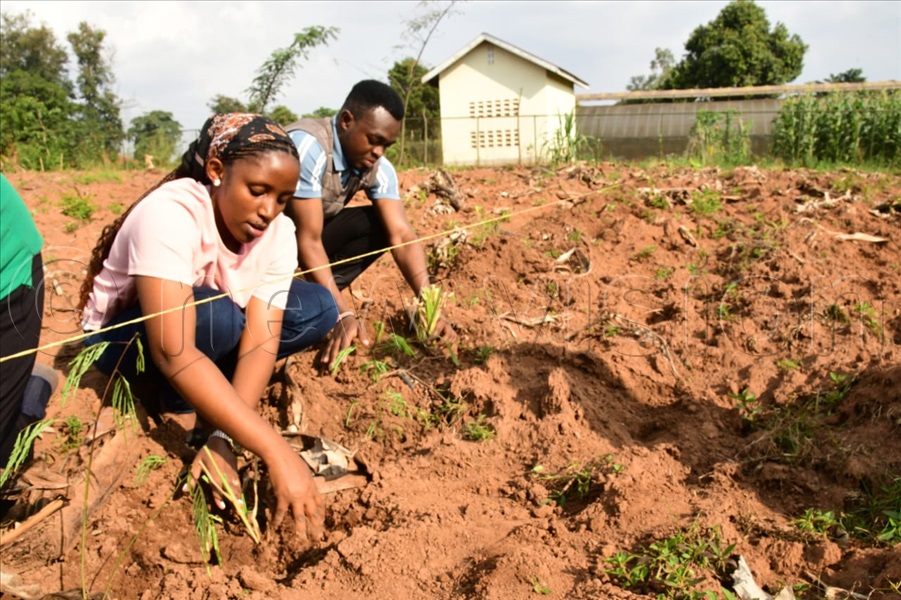
Participants from Tanzania take part in the digging of trenches to prevent soil and water erosion in a garden.
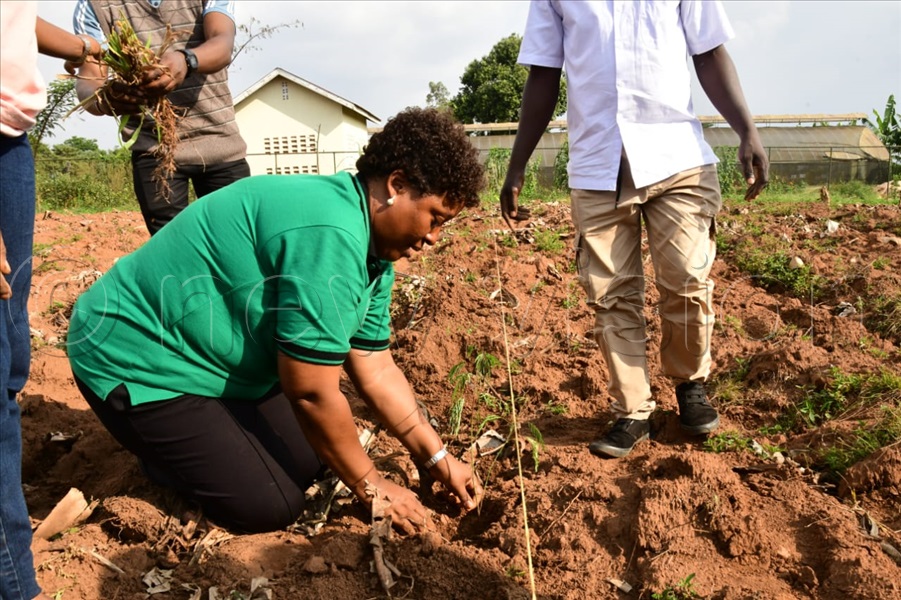
He, however, said that to achieve it, people require sustainable farming systems that conserve biodiversity and enable the water and nutrient cycles to come back in place.
“When you plant a seed, it grows into a plant, fruit and goes back to a seed and goes back to the soil and becomes a plant, which is a system that must not be interrupted,” he said and called for sustainable approaches that allow people to plant and harvest the same seed, other than planting a seed, harvest what to eat and cannot harvest seed.
“Sustainability means that we can we use the land today in a manner that even the future generation will find the land when it is still able to produce food,” he stressed, adding that using agroecology as a new technology, farmers should be able to acquire the knowledge of growing healthy foods and only applying ecofriendly chemicals,” he said.
________________________
The training was funded by the European Union through the International Fund for Agricultural Development (IFAD) and the Comprehensive Africa Agriculture Development Programme (CAADP). (All Photos by Eddie Ssejjoba)
